Nothing Found
Sorry, no posts matched your criteria
Sorry, no posts matched your criteria

Since the May 2018 visit to Australia by French President Emmanuel Macron, Australian commentators have continued to assert that French colonial control in the Pacific is crucial to constraining China’s rising influence in the region. But much of this analysis is based on a misunderstanding of the dynamism of local politics in the French Pacific dependencies.
A series of articles and opinion pieces in The Australian newspaper have championed the increasing strategic relationship between France and Australia in the South Pacific. Many of them quote staff from leading think tanks, including ASPI.
In a front-page story, Simon Benson argues: ‘Australia and the US are urging France to boost its Pacific influence as part of a new strategic and economic alliance that would act as a counterbalance to China’s ambitions and mark a significant shift in attitude towards the French presence in the region.’
Foreign editor Greg Sheridan presents France as a welcome bulwark against the Chinese.
Greg Brown asserts that ‘the French retain control over a group of islands in the region including New Caledonia, French Polynesia, the Society Islands and the Wallis and Futuna islands’ (notwithstanding the fact that the Society Islands are part of French Polynesia and Wallis and Futuna is a separate territory).
The reporting continues to perpetuate the myth that independence movements in the region have collapsed. In an opinion piece in The Australian, ASPI’s Anthony Bergin and the ANU’s David Brewster make no mention of the political situation on the ground in New Caledonia or French Polynesia. In The Australian, ASPI’s executive director, Peter Jennings, states: ‘Ten to 15 years ago there was at least some rumblings of independence support in New Caledonia and that has largely and successfully been put to bed by the French.’
Jennings is fundamentally wrong. Over the past 15 years, the Kanak independence coalition Front de libération nationale kanak et socialiste (FLNKS) and other pro-independence parties have steadily increased their representation in New Caledonia’s 54-member Congress, from 18 seats in 2004 to 26 seats in 2019. Since 1999, the FLNKS has controlled two of three provincial administrations.
The results of the November 2018 referendum on self-determination and the May 2019 elections for New Caledonia’s three provincial assemblies and Congress clearly show that the independence movement has not been ‘put to bed by the French’.
After elections on 12 May, New Caledonia’s Congress has 25 loyalists, 26 independence supporters, and 3 members of a new party Eveil océanien (‘Pacific awakening’), which draws its support from the large Wallisian and Futunan communities living in New Caledonia. Despite the new party’s stated loyalty to the French Republic, the three Wallisian votes were cast for independence politician Roch Wamytan to take up the post of speaker of the Congress last month. This sends a signal to the anti-independence parties that the Wallisian community will act in its own interests as New Caledonia moves to a new political status under the 1998 Noumea Accord. Wamytan has used his status in the Congress to travel this month to France to attend meetings of the UN Special Committee on Decolonization and the Non-Aligned Movement.
The same dynamism in the independence movement was shown during the referendum campaign last year. On 4 November last year, more than 141,000 voters in New Caledonia went to the polls to determine the political status of the French Pacific dependency: ‘Do you want New Caledonia to accede to full sovereignty and become independent?’
In an unprecedented turnout, 56.67% of voters decided to remain within the French Republic, while 43.33% voted ‘Yes’ for independence. These figures, with a majority opposing full sovereignty, suggest a setback for the FLNKS. In reality, the size of the ‘Yes’ vote disappointed partisans of the French Republic and opened the way for a second referendum in 2020. Opinion polling suggested the pro-independence vote would be only around 30%, misreading the FLNKS campaign on the ground.
Just days after the referendum, FLNKS spokesperson Daniel Goa stated:
We lost on the numbers, but for us it’s a victory. For the Kanak people, the first people, this is a great victory, as we have loudly and clearly expressed our perspective without ambiguity and without recourse. Who now will contest the justice of our struggle, who now will challenge our very existence?
If Australia’s strategic think tanks and leading newspapers are so clearly misreading the situation on the ground, it’s a worrying sign that the Australia–France strategic partnership in the Pacific is built on shaky foundations.
As with independent island neighbours, local governments in New Caledonia and French Polynesia are seeking closer trade, tourism and investment links with China. Air Calédonie is running charter flights for Chinese tourists to New Caledonia, Chinese corporations are planning multimillion-dollar tourism and fisheries investments in French Polynesia, and mining companies are exporting increasing amounts of New Caledonian nickel to China, thanks to Clive Palmer and the closure of the Townsville nickel smelter. These developments challenge the Canberra consensus that the French dependencies are bulwarks against Chinese expansionism.
Australian support for ongoing French colonialism in the South Pacific may also generate long-term tensions with our nearest neighbours. Members of the Melanesian Spearhead Group continue to support decolonisation in New Caledonia. Smaller island states like Nauru, Solomon Islands and Tuvalu successfully moved a 2013 motion through the UN General Assembly to reinscribe French Polynesia on the UN list of non-self-governing territories.
Australian commentators can try to pretend that decolonisation is off the agenda in the Pacific. All they have to do is persuade the peoples of New Caledonia, French Polynesia, Bougainville, Guam and West Papua.

In the ‘Vision statement on the Australia–France relationship’ published last May, Malcolm Turnbull and Emmanuel Macron said they ‘welcomed the project to map environmental risks in the south of the Indian Ocean and the Southern Ocean, which will help to understand and anticipate the security consequences of climate phenomena’.
The resulting report is a key step from the vision statement and Macron’s visit to Australia. Environmental security in the eastern Indian Ocean, Antarctica and the Southern Ocean: a risk mapping approach was publicly released last week by the Australian National University’s National Security College. I was the chief investigator for the study and worked closely in preparing the report with David Brewster, François Gemenne and Paul Barnes.
The study establishes an environmental security ‘risk map’ for our near region. It provides a contribution to the national security assessments of Australia and France and an enhanced foundation to inform policy decisions about the allocation of national resources, identifies opportunities for cooperation and suggests priorities. French researchers will release a similar study of environmental security risks in the western Indian Ocean next year.
The report assesses the likelihood and consequences of major potential disruptions, details cross-cutting sources of disruption and possible triggers for concerted action, and considers the implications of emergent issues or threats and escalated responses to them (including likely cascading and compounding impacts if threats aren’t addressed).
The methodology for how the risk matrices were constructed is set out in detail in the report. The risk assessment matrix for the eastern Indian Ocean identifies threats and challenges to this subregion of the Indian Ocean that is closest to Australia. The countries in this area are Australia, Bangladesh, India, Indonesia, Malaysia, Myanmar, Singapore, Sri Lanka, Thailand and Timor-Leste.
The report makes nine recommendations in relation to the eastern Indian Ocean. They include the following:
In the area south of latitude 60°S, both France and Australia look at Antarctica and the Southern Ocean through a strategic lens, focused on supporting and strengthening the Antarctic Treaty System. France and Australia have adjacent territory in Antarctica: France’s Adélie Land bisects the Australian Antarctic Territory.
Both nations also possess neighbouring island territories in the sub-Antarctic region—for France, the Kerguelen and Crozet Islands, and for Australia, the Territory of Heard Island and McDonald Islands (HIMI). Both countries also assert their rights to the maritime zones around their territories, including sections of the Kerguelen Plateau. A delimitation agreement settles the boundary between Kerguelen and HIMI.
The risk assessment matrix for the Southern Ocean and Antarctica sets out the threats and challenges to this area.
The report makes 14 recommendations for cooperation between France and Australia in the region south of latitude 60°S, including the following:
France–Australia cooperation can be further developed to assist in risk mitigation to better manage activities in the geographical areas discussed in the report. There are grounds for optimism here. Environmental interests have played a major role in driving France’s cooperation with Australia in Antarctica and the Southern Ocean.
Despite the distances between Australian and French territories in the Indian Ocean, there are also substantial opportunities for bilateral cooperation in the eastern part of the ocean, reflecting their past experience in cooperation, their capabilities and their shared perspectives on many issues. There are many opportunities for bilateral cooperation in high-level scientific research alliances relevant to the blue economy and climate change.
The protection of the eastern Indian Ocean, Antarctic and Southern Ocean ecosystems will require actions well in advance of when changes to those ecosystems may be detected.
Both Australia and France will need to work with a range of like-minded states with which they share common interests to address current challenges in managing the environmental system and the strategic risks that poor environmental management in the eastern Indian Ocean and the area south of latitude 60°S will bring.
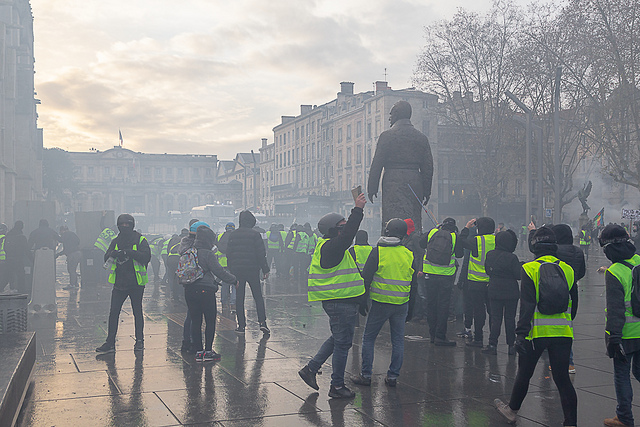
The support from Italy’s populist leaders for the ‘Yellow Vest’ protests in France is a sad first in the history of the European Union. Never before has one of the six founding countries of the European project intervened so resolutely in the domestic affairs of another. To add insult to injury, Italy is supporting a movement that contains elements who clearly reject fundamental European values of tolerance and respect for democratic institutions.
Italy has gone astray, and France needs to understand why, so that it can fight to ensure that populism doesn’t gain further ground domestically. In doing so, France must distinguish the Italian people from some of their far less admirable political leaders.
Rising tensions between the French and Italian governments are partly the result of competition between the two populist parties in Italy’s ruling coalition, which took office in June 2018. This was recently reflected in strong anti-French rhetoric from the leader of the Five Star Movement, Luigi Di Maio, who until now has been largely eclipsed by the League party leader, Matteo Salvini. But anti-French sentiment in Italy has deeper roots, and exists among both the elites and parts of the wider population.
Franco-Italian relations have always been complex. As the heir to the Roman Empire, Renaissance and Baroque Italy felt culturally superior to France and more refined. For Italians, the demonstrative way in which France exhibited its greatness and glory from the time of the Sun King (Louis XIV) to Napoleon made it appear ‘nouveau riche’. Even French support for Italian unification in the second half of the 19th century contributed to further misunderstanding, because France ‘received’ Savoy and Nice in exchange for its precious help.
In more recent times, there had at least been some signs of mutual admiration. Italians looked enviously at France’s well-functioning state, while the French nodded approvingly at northern Italy’s dynamic network of small and medium-sized companies. Today, however, this kind of reciprocal praise seems like the stuff of nostalgia.
The view from Rome these days is that France gives lectures on budgetary rigor but no longer practises it, as when French President Emmanuel Macron cancelled his planned fuel-tax increase in the face of the Yellow Vest protests. But Italy’s current negative perception of France is above all emotional. From the crisis in Libya (a country Italy knows well) to the migrant crisis (which has hit Italy disproportionally hard), Italians feel deliberately ignored, if not abandoned, by the French—who, to make matters worse, also give the impression of looking down on their neighbours.
It is tempting to compare Italy’s criticism of France to the Yellow Vests’ hostility towards French elites. Both sentiments, after all, draw their strength from a feeling of humiliation in the face of perceived arrogance and privilege. The big question now is whether Italy’s populist present will be France’s future.
Clearly, this scenario is no longer inconceivable. Defenders of liberal democracy in France and elsewhere must, therefore, adopt and adapt the Yellow Vest motto and refuse to give in.
In a short 2008 essay entitled ‘The spirit of the Enlightenment’, the late French essayist of Bulgarian descent, Tzvetan Todorov, reminded us that ‘there would not have been a Europe without the Enlightenment and no Enlightenment without Europe’. And in the immediate aftermath of World War II, statesmen such as Robert Schuman in France and Alcide de Gasperi in Italy not only were devout Christians, but also believed in the ideas of Montesquieu and Voltaire.
This is clearly not the case with Salvini or Marine Le Pen in France. Rather than being united and moved by hope and trust, they are exploiting a culture of fear and humiliation and a common desire to destroy the existing system.
There is little to be gained simply by contrasting the spirit of the Enlightenment with the populist spirit of the Yellow Vests, or Macron’s deep and sincere desire for reforms with Salvini’s shrewd and brutal vulgarity. But there are lessons to be learned from the rise of the Italian populists and the French Yellow Vests.
For starters, one cannot ignore the emotions of others. Equality of respect is as important as equality of means. Humiliation is a powerful motor that can drive people to sheer hatred, as Macron is currently experiencing. Furthermore, representative democracy is fragile and precious. It must be defended at all costs from its authoritarian external enemies, as well as from domestic opponents intent on seeing only its shortcomings.
France, meanwhile, should maintain its moderate, reasonable, yet firm stance and not engage in a war of words with Italy. Instead, it should try to understand how—and, even more so, why—it became the principal target of its transalpine neighbour. Critical reflection here could help France to overcome its own internal divisions and prevent Italian-style populism from taking power in Paris.
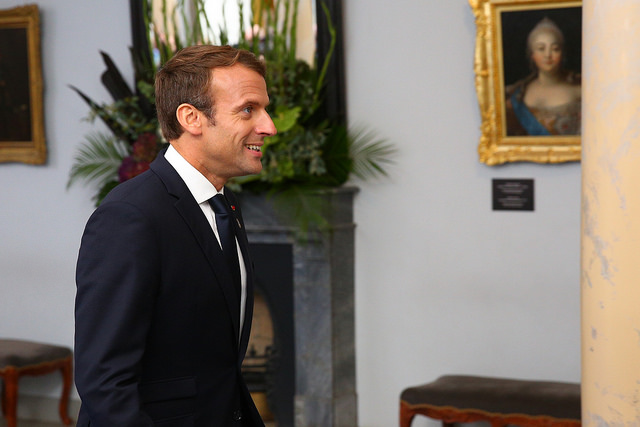
For centuries, France and the United States have been friends, allies and competitors. Both have been world powers; both have been models of liberal democracy; and both achieved democratisation through revolution. In fact, France was the first ally of the new US, having provided military support during the American Revolutionary War—the first of many times the countries would collaborate in military endeavours.
On his recent trip to Washington, DC, French President Emmanuel Macron attempted to use this history to reinforce the bilateral relationship today, potentially giving France more influence over US President Donald Trump’s unpredictable administration. But Macron’s affability and bonhomie cannot obscure the fact that the two countries are operating under very different circumstances than in the past, much less ensure any semblance of reliability from the Trump administration.
During the Cold War, General Charles de Gaulle wanted France to serve as a bridge between the West and the East. This implied being a faithful US ally, in good times and in bad, while acting as something of a fair-weather friend to the Soviet Union and China.
Today, Macron wants France to serve as a bridge within the West: between the US and Europe. This might seem to be an easier task, given the two sides’ shared history and values. And, indeed, it is that history and those values that Macron attempted to invoke, as he established himself as a defender of liberal democracy and internationalism, with language and vision marked by American-style optimism.
Nor is this the first time a French president has acted like an American leader. But Nicolas Sarkozy—who literally coined for himself the nickname ‘Sarko the American’—was more eager to align himself with George W. Bush, especially when it came to foreign policy. Macron, by contrast, is espousing the values and adopting the rhetoric of Barack Obama.
Neither has much in common with Trump, who, in the words of former FBI Director James Comey, acts more like a mafia boss than a US president, and seems utterly uninterested in sustaining US global leadership. The challenge ahead for Macron may thus turn out to be even more formidable than the one confronted by De Gaulle.
If Macron’s visit were a soccer game, it would have included some beautifully executed plays—such as Macron’s speech to the US Congress—before ending in a draw. Beneath the veneer of mutual affection on display in Washington, Macron’s visit was marked by deep disagreements, including over climate change and the Iran nuclear deal.
Macron’s declaration that ‘there is no Planet B’ has not elicited any substantive move by Trump to rejoin the Paris climate agreement. And, despite the mention of a new, enlarged agreement with Iran, Trump continues to embrace the radical visions of his new secretary of state, Mike Pompeo, and national security adviser, John Bolton.
By establishing a friendly public rapport with Trump, Macron may even have put himself at risk. After all, it will not look good if Macron is closely aligned with a Trump who makes catastrophic strategic decisions or ends up in the jaws of the US justice system. Trump is simply too unpredictable for a close relationship with him to be anything other than a political liability.
If that closeness—those appeals to Trump’s vanity—were producing positive outcomes for along the way, Macron’s efforts might be worthwhile. But to flatter Trump is one thing; to obtain significant diplomatic and trade concessions from him is quite another. And Macron seems to have found success on only one of those fronts.
By establishing himself as a voice of reason, moderation and responsibility, Macron tried to lay the groundwork for his emergence as a real agent of change. He does not want his legacy to comprise simply powerful speeches; he wants to tackle real issues affecting France, Europe and the world. But it remains far from clear whether his tactics will work, particularly with regard to Trump.
The question is whether the alternative approach to Trump—the far less friendly, more businesslike approach of German Chancellor Angela Merkel—will produce better results. It seems unlikely, but when it comes to securing actual concessions, at least Merkel cannot do much worse.
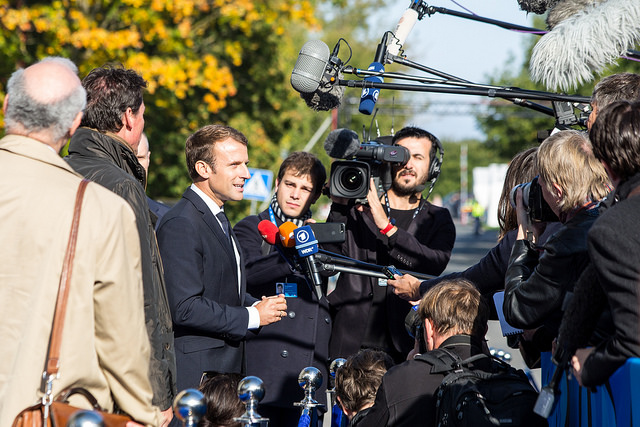
Until the terrorist attack at a market in southern France on 23 March, French President Emmanuel Macron had been planning to launch a new European-level political campaign. Though the official rollout has now been postponed, Macron’s latest project remains central to his presidency and to his conception of power.
Macron’s ‘La grande marche pour l’Europe’ will mimic the program that toppled France’s dominant political parties and transformed his La République En Marche ! movement into a political force in 2017. Over the course of six weeks, he will dispatch 10 ministers and 200 parliamentarians to survey the French people’s views on Europe and European issues. The results will then be considered in developing a platform that can beat populist and Euroskeptic parties in the 2019 European Parliament election.
Macron has persuaded all other EU member states (with the exception of Hungary and the United Kingdom) to conduct similar public consultations, which he hopes will lay the groundwork for the EU‑level reforms he proposed in major speeches in Athens and at the Sorbonne last year.
To understand the full scope of Macron’s ambitions, we should consider the principles that underpin his worldview and guide his approach to politics. Few are better acquainted with Macron’s thinking than French historian and philosopher François Dosse. Dosse not only taught Macron at Sciences Po in the late 1990s, but also introduced him to his intellectual mentor, French philosopher Paul Ricoeur, for whom Macron worked as a research assistant for two years.
Dosse recently published a book about Macron and Ricoeur titled Le philosophe et le president. A few weeks ago, I met with him in his Paris apartment to discuss his latest work, and he explained Macron’s approach to European reform as a combination of two fundamental Ricoeurian concepts.
The first is ‘consensus dissensuel’. This may sound like a highfalutin version of ‘having one’s cake and eating it’. But, according to Dosse, it is really about drawing strength from the opposition between two conflicting viewpoints, unlike a Hegelian approach, which seeks synthesis between two poles. Macron’s embrace of the Ricoeurian model is evident in his frequent use of the phrase ‘en même temps’ (‘at the same time’) when describing parallel domestic-reform proposals.
Similarly, Macron’s vision for Europe seems to reconcile the irreconcilable: his plan is both to preserve member states’ sovereignty and deepen EU integration. Institutionally, this means supporting supranational bodies while also allowing for more flexibility in areas where national governments, rather than Brussels, are better positioned to solve problems.
On defence policy, Macron wants to work within existing EU treaties, and he supports proposals for a Permanent Structured Cooperation (PESCO) agreement and a European Defence Fund. But he also hopes to move beyond the current EU and even NATO frameworks to establish a European intervention initiative that would operate alongside British, US and other allied expeditionary forces.
On migration, Macron wants both to secure Europe’s external borders and ensure that the burden of taking in refugees is shared across the EU. In the short term, he is pushing for an agreement among member states on refugee quotas. But, in the long run, he supports greater harmonisation of asylum systems, or even the creation of a central EU asylum agency.
Macron also hopes to reconcile opposite ideas with respect to the euro. While pushing for reforms within France that will reduce the risks of financial contagion, he is also calling for a common eurozone budget and finance ministry to make the monetary union more resilient to future shocks.
Beyond these areas, Macron wants to boost innovation in the digital sphere, by establishing a European version of the United States’ Defense Advanced Research Projects Agency. At the same time, he wants to protect national sovereignty in the digital age through regulations and a common fiscal approach.
The second Ricoeurian concept underpinning Macron’s worldview is the idea of a European ‘refoundation’. Whereas the first wave of European integration was largely limited to economics, Macron now wants to focus on politics and culture, starting with the European Parliament election next year.
When Macron looks at the EU political stage, he sees stale cartel parties that are just as ripe for disruption as France’s mainstream parties were in 2017. For example, he has mocked the centre-right European People’s Party, asking how any parliamentary group can call itself Christian Democratic when it includes the parties of former Italian Prime Minister Silvio Berlusconi and Hungarian Prime Minister Viktor Orbán.
Macron also recognises that the decline of the centre left in Europe—along with the impending post-Brexit exodus of UK Labour Party MPs—has left a large void that needs to be filled. To that end, he has considered creating a Europe-wide ‘En Marche !’ movement that could nominate its own Spitzenkandidat to the European Commission presidency. In fact, there has already been some talk of positioning European Commissioner for Competition Margrethe Vestager for that role.
Initially, the Macronistes had planned to recruit defectors from other party groups, and then ally with the left-leaning Alliance of Liberals and Democrats for Europe. But the creation of a European En Marche ! could mean that they will try to edge out the ALDE, too. At any rate, German Chancellor Angela Merkel will insist on a conservative candidate for the Commission presidency, so Macron might try to use that as a bargaining chip for concessions on other issues.
Much remains to be seen, but it is already clear that Macron has brought a new kind of thinking to European politics. In his view, sovereignty in Europe can really be exercised only at the level of the EU. He is taking France from the Fifth Republic to a Sixth Republic that is no longer strictly franco-francaise, but truly European.
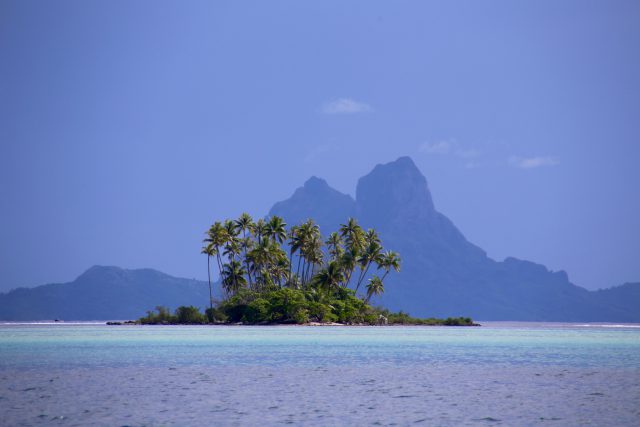
Australia’s 2017 white paper on foreign policy is necessarily a sweeping ranking of priorities and partners. Not unexpectedly, the paper renews our commitment to our major partner, the United States, while foreshadowing a nuanced relationship with China, about which there has been much academic discussion.
The paper makes precious little mention, however, of France, our closest eastern neighbour through its territory, New Caledonia. France’s Pacific territory bookends the entire South Pacific—with New Caledonia at the western end off Queensland, and uninhabited Clipperton Island to the far east just off the Mexican coast—and occupies the strategic centre, at French Polynesia and the Territory of Wallis and Futuna. France also maintains naval and air assets and nearly 3,000 military personnel in New Caledonia and French Polynesia.
In the way of these types of analyses, French strategic experts will undoubtedly play the game of ‘spot the references to France’ in this rare statement of Australian foreign policy objectives. In that they’ll be disappointed. There are just four specific mentions of ‘France’. Two of them are in the glossary (listing members of the G20 and the Joint Comprehensive Plan of Action relating to Iran’s nuclear program, pp. 118 and 119). Of the remaining two substantive references, the first (p. 81) identifies France as one of two key EU member states (the other is Germany) after the United Kingdom with which Australia will strengthen bilateral relationships on global economic governance. The other at least appears in the Pacific chapter (p. 103), but only notes joint maritime surveillance and disaster management activities with the US and New Zealand under the 1992 FRANZ arrangement.
While there are many general references to ‘working with [unspecified] others’ in the document (for example, over North Korea (p. 4) and on counter-terrorism (p. 7)) and one to working with ‘Pacific partners’ (p. 103), it can’t be assumed that France is among their number. It’s to be hoped that France isn’t covered by the reference in the Pacific chapter to engaging ‘the Pacific’s outside partners’ (p. 100), given France’s unique status as a Western partner with a substantial resident sovereign status in the South Pacific.
Why are these frugal references to France disappointing?
First, because France sees its relationship with Australia as entering a new ‘strategic partnership’ phase, and Australia itself signed on to an ‘enhanced strategic partnership‘ with France earlier this year. So far, the content of those intentions is less than clear, and the white paper doesn’t elaborate.
Second, Australia only last year granted its largest defence contract ever—$53 billion to construct 12 Shortfin Barracuda submarines—to France. It would be logical to extract some kind of quid pro quo in terms of, say, closer defence collaboration, a refreshed approach by France to concluding an EU free trade agreement with Australia, or greater scientific and technical collaboration. But there’s no such mention.
Third, France and Australia are facing the same challenges in the South Pacific region, and it isn’t unreasonable to assume that we would be looking at new ways to work with France to manage them.
A relevant side issue is the paper’s emphasis on the ‘Indo-Pacific’. This notion minimises Australia’s separate strategic reaches into the Pacific in the east, Asia-Pacific in the north, and the Indian Ocean to the west. It thereby conceptually diminishes relative Australian strategic influence in the Pacific at a time when the most dramatic geostrategic power shifts are occurring there. Australia, by its geography and continental status, is the only country to be endowed with such an enviable triple-headed reach. France, as a western ally which shares, through its overseas territories, two of those spheres of interest, in the Indian and Pacific oceans, would seem a logical partner.
The white paper’s relegation of France to the status of an important but primarily European power in Australia’s global efforts, and just a longstanding FRANZ partner in the South Pacific, undervalues the potential of a partnership with a well-resourced power with similar interests in the two oceans at a time of change.
Finally, the few references to France don’t seem to match with the paper’s overall prioritisation of climate change and sustainable development, key focal points in the immediate Pacific neighbourhood and areas in which France, through its technological expertise deriving from its research centres in the region, is well placed to contribute.
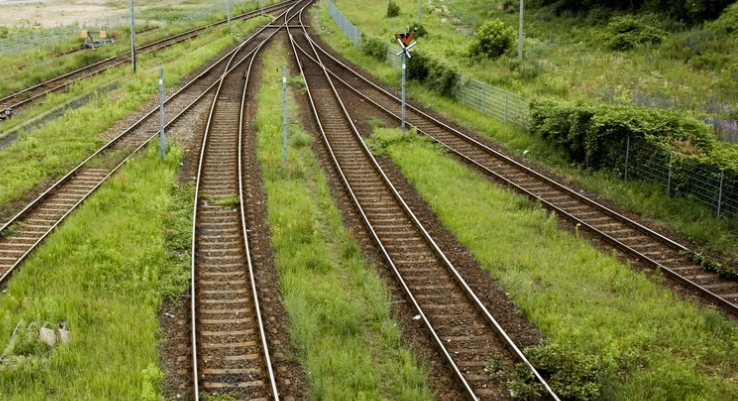
Deep divisions within Europe are increasingly threatening the values upon which the European project of ‘ever closer union’ is based. In 2015, during the refugee crisis, many commentators saw a divide between German Chancellor Angela Merkel’s Willkommenskultur (welcoming culture) and Hungarian Prime Minister Victor Orbán’s vision of ethnic purity: a Western Europe of bridges versus an Eastern Europe of walls.
But another threat to European unity comes from within individual countries. In Germany, talks to form a center-left, center-right coalition have broken down. In the Netherlands, it took Prime Minister Mark Rutte 208 days to form a new government after elections in March. In the United Kingdom, the political establishment is in disarray over Brexit. And in Poland, white nationalists and neo-Nazis recently staged a massive march through the streets of Warsaw.
Which gulfs are wider—those between member states or those within them? The answer to that question matters a great deal. If Europe’s biggest problem is that it is divided along national borders, then liberal-leaning countries like France and Germany could try to change the balance of power within increasingly illiberal countries.
Every EU country agreed to a set of liberal-democratic standards (part of the so-called Copenhagen Criteria) when it joined the club. But, over time, the governments of Hungary and Poland have decided that they no longer want to abide by the rules. One solution could be to create a smaller club with better benefits. Countries that wish to join this privileged inner circle would have to agree to a new—or rather, the original—set of rules; and countries that break the rules would be left out. There would finally be a cost to breaching EU standards.
But this solution could work only if the biggest problem is the divide between member states. As for the divisions within member states, consider Germany. After the federal election in September, Merkel embarked on a fascinating experiment, in which she tried to unite her center-right Christian Democratic Union (CDU), its more nativist sister party, the Christian Social Union (CSU), the pro-business Free Democrats (FDP), and the left-wing Greens.
Merkel is a talented negotiator, and far better suited to write about ‘the art of the deal’ than others we won’t bother mentioning. But it remains to be seen if she can heal the divisions in her own country.
While the Greens would like to uphold the Willkommenskultur, the CSU’s position on migration is closer to that of the Visegrád Group (the Czech Republic, Hungary, Poland and Slovakia). In fact, at the height of the refugee crisis in 2015, the CSU hosted Orbán at one of its party conferences.
Moreover, while the Greens are European federalists who support greater economic solidarity with Greece and Italy, the FDP channels the fiscal discipline of the Finns, the Dutch, and German Swabians. They are staunchly opposed to deeper European economic integration.
Many hoped that Merkel would succeed in forging a ‘Jamaica’ coalition (named after the colours of that country’s flag). But, in the end, the experiment failed. The FDP abandoned the talks out of frustration that, as its leader Christian Lindner put it, ‘The four discussion partners have no common vision for modernization of the country or common basis of trust.’
Even without a Jamaica coalition, Germany still has a stable liberal majority in the Bundestag. The same cannot be said for the rest of the EU, where almost every other member state is now a ‘50–50 society’: half cosmopolitan, half communitarian. In these countries, the government at any given time represents whichever side won the latest round in an ongoing culture war.
In the UK, for example, 52% of voters opted to leave the EU. The country is now hurtling towards an isolated state of provincialism and xenophobia, but its leaders keep telling the public that Britain will be better off on its own. For those who believe it, the fact that the UK will lose a say in EU decisions affecting its economic environment doesn’t seem to matter.
France, on the other hand, has an energetic new pro-European president, Emmanuel Macron, who is committed to preparing his country for the years ahead. And yet France is not much more cosmopolitan than Britain. In the first round of the presidential election this spring, the nativist campaigns of Marine Le Pen, Jean-Luc Mélenchon and Nicolas Dupont-Aignan collectively won 46% of the vote—almost as much as the UK’s ‘Leave’ campaign.
Clearly, the EU is a society both of states and of citizens. That means intra-national divides are as important as the diplomatic spats between countries.
Earlier this year, a Brookings Institution report tried to determine if Europe is an ‘optimal political area’, a concept borrowed from economist Robert Mundell’s theory of ‘optimal currency areas’. The report concluded that cultural and institutional differences between EU countries have not changed much over the past three decades of European integration. But it also found that the divisions between countries are far smaller than the differences within countries. Or in other words, on the issue of freedom of movement, there is greater polarisation between London and the British Midlands than between the UK and Poland.
Creating a flexible or multi-tiered Europe could solve some short-term problems, by bringing together coalitions of the willing to address specific issues. But it could also introduce new dangers. After all, most European countries, regardless of what tier they are on, will still be 50–50 societies that could opt in or out of deeper integration with a single election or referendum. In the future, one cannot rule out the possibility that Le Pen will be elected president of France, or that the anti-EU Five Star Movement will come to power in Italy. By the same token, the more moderate Civic Platform might return to power in Poland.
Confronting the intra-societal challenge to the European project will not be easy. It is a deep, generational problem that goes to the heart of national identity, history and geography. No quick institutional fix can solve a problem like that.
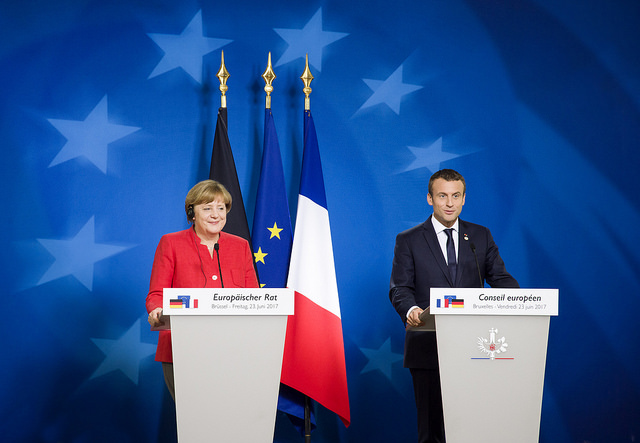
Seven months ago, when Marine Le Pen of the far-right National Front had a chance of winning the French presidency, Germany feared for France’s future. But after Germany’s federal election in September, France has not been particularly afraid for its neighbour. The extreme-right Alternative für Deutschland (AfD), for all its gains, is not about to come to power. Germany, after all, is not Austria.
Nevertheless, French and German elites have found a common cause for concern: Germany may be unable to seize the exceptional opportunity created by French President Emmanuel Macron’s victory. Before, the problem was not that Germany was too strong, but that France was too weak. Now the problem is not that France is too ambitious for Europe, but that Germany is not ambitious enough.
For years, Germans complained that France was incapable of domestic reform, and that the French did not understand the meaning of ‘federalism’ in the context of the European Union. Against that backdrop, Macron took the stage, presenting himself as an activist philosopher-president. He is a disciple of the French philosopher Paul Ricœur, and speaks of ‘European sovereignty’ in the same way that German philosopher Jürgen Habermas speaks of ‘European citizenship’.
It will be difficult to strike a harmonious balance between a French president at the dawn of his power and German Chancellor Angela Merkel, who seems to be in the twilight of hers. Above all, it will require Germany to match France’s new audacity.
Of course, Germany’s suspicion of greater risk-sharing in the eurozone, which Macron’s EU reform agenda seems to imply, is understandable. For Germans, that sounds like an updated version of the old EU mantra: ‘Germany will pay.’ But the enthusiasm gap between the two governments need not be an unbridgeable abyss.
Le Pen often quipped during the French presidential campaign that, ‘Whatever the election results, France will be governed by a woman: It will be either me or the chancellor of Germany.’ The line was witty and provocative; but it was also wrong. Today, Le Pen is well on her way to being a mere detail of history. And while Merkel is still the wise statesperson to whom much of Europe looks for leadership, she is no longer in a position to set the EU’s agenda unilaterally.
Clearly, French and German politics are on different emotional trajectories. Germany is more or less satisfied with itself and its place in the world. Merkel’s decision to open the country’s borders at the height of the refugee crisis surely cost her previous coalition votes in September’s election. But, on the whole, Germans remain unwilling to change a European status quo that has proved highly successful for their country.
France, by contrast, feels that change must come now or never. If France and Europe wait until tomorrow to do what should have been done today, then all will have already been lost. From France’s perspective, history seems to be accelerating. The United Kingdom is currently negotiating the terms of its withdrawal from the EU; Catalonia’s regional parliament has just declared independence from Spain; and populism is resurgent in Central and Eastern Europe.
If France wants to remain relevant in Europe, it must use the current moment to reform itself. And if the EU wants to remain relevant in the world, especially now that America has lost its way, it needs to put European integration back on track.
The gap between France and Germany is largest when it comes to defence and security, owing to a deep cultural divide between the two countries. To be sure, most French and German citizens identify as European, as opposed to UK citizens, who identify as British—or even as English, Irish, Scottish or Welsh. This is why German and French critiques of the EU generally focus on the bloc’s performance, whereas the British often strike at the European project itself.
But when it comes to security and defence, these affinities are reversed: France and Britain are very likeminded, while Germany, owing to its history, has long shied away from martial pursuits of any kind.
Of course, there are many differences between Britain and France with respect to how they engage with the United States and NATO. The UK is naturally closer to NATO than France is. But the UK, mortified by US President Donald Trump, has also grown more distant from the US, while France, under Macron, has grown somewhat closer. Unlike Macron, British Prime Minister Theresa May is not convinced that she can charm Trump.
The Franco-German partnership has long been the pillar of EU stability. And given the deepening crisis in Catalonia and the resilience of European populists, the bilateral relationship is more important than ever.
Put bluntly, Macron and Merkel represent European liberal democracy, based on reason and openness, in contrast to the populist vision represented by Hungarian Prime Minister Viktor Orbán and de facto Polish leader Jarosław Kaczyński. With recent elections in Austria and the Czech Republic moving Central Europe towards what might be called an Austro-Hungarian populist empire, Germany has as much at stake in successful EU reform as France does. The ball, as the Americans say, is in Merkel’s court.
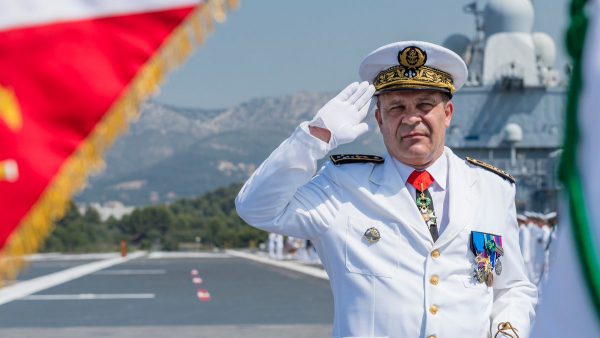
As military cooperation between France and Australia increases, the French Navy is stepping up its presence in the Asia–Pacific region to protect its trade routes and demonstrate the importance it places on international maritime law.
The chief of the French Navy, Admiral Christophe Prazuck, tells The Strategist that the government-to-government agreement for the French company Naval Group to design 12 submarines for the Royal Australian Navy signals much closer cooperation for decades to come.
‘A key reason for our involvement in the region is our new strategic relationship with Australia. We are profoundly linked to the Australian Navy. This contract will link our two countries for decades. For 30, 40, 50 years our links will be tight.’
Prazuck, who served in submarines, on surface warships, as a special forces officer and as an oceanographer, says defence cooperation between France and Australia will be enhanced by the submarine project but it won’t be limited to submarine operations. ‘Our road map is not limited to submarines. It includes environmental surveys, oceanography, hydrography.’
There’s already increasingly close cooperation on anti-submarine warfare, submarine strategy and amphibious operations and more visits to Australian ports by French warships, Prazuck says. ‘We’re sending to Australia our newest class of ships. In the past such visits have been made by patrol boats arriving from France’s island territories. Now we are sending here our most sophisticated pieces of equipment to work with our Australian friends.’
France has always had a strong interest in the Asia–Pacific, Prazuck says. ‘The centre of gravity of the world is moving towards your region. Much of our trade is now with Asia and the Indo-Pacific. We’re not so far from home because we have 1.6 million French people living in the Pacific, in New Caledonia, Polynesia and expats in the area. So we are a country of the Pacific region. We live in the region’, he says.
‘Your region of the world is pretty dynamic’, Prazuck says. ‘Each country in the region is getting the tools it needs to protect its security and prosperity.’ He says France is closely following the tensions in the South China Sea. France is concerned that the international court ruling on the disputed territories has been ignored. ‘This is of great concern to us. We are following it with great attention.’
France is translating those concerns into actions by increasing its naval presence in the area, Prazuck says.
‘What’s happening in the region with the weakening of the law of the sea is important to us. We have been sailing in the area and particularly in the disputed areas to make our point as a maritime country.’
The most recent French defence white paper raises two key security concerns, Prazuck says. The first is the opportunities provided to terrorists when governance collapses and nations become failed states. The other is the extent to which global and regional powers are increasing their arsenals, especially at sea.
‘The strategic landscape is moving rapidly’, Prazuck says. ‘China, for example, built in the last four years the equivalent of the entire French Navy. It’s not a threat, but the landscape has changed and it’s changing very fast. It’s changing faster at sea than on land. With freedom of navigation you can move your assets more easily. You can show your power more easily and you can put pressure on the sea lines of communication and have a strong influence without moving out of your country.’
A more recently emerged threat is North Korea.
Admiral Prazuck now has an Australian officer, a captain, on his staff in Paris to help build the relationship. ‘Having an Australian officer 20 metres from my office will help me to have better interaction with the Australian Navy’, he says. ‘I have a British officer, an American officer, a German officer and an Australian officer. Our four main partners.’
The French military has regularly worked closely with Australian and New Zealand forces to deal with natural disasters in the region.
Prazuck says France needs a strong naval capability because it’s the world’s number two maritime nation with the second largest exclusive economic zone (EEZ). ‘Australia is the third. If you add all the EEZs around our islands, we have 11 million square kilometres—the equivalent of the US and Mexico. It’s a huge piece of water.’
He says that, as a former submariner, he’s sure the conventionally powered Shortfin Barracuda being designed for the RAN will be a very effective submarine that will meet Australia’s needs. ‘I have no doubt about that.’
The question of whether Australia should have nuclear submarines is a political and strategic issue rather than a technical issue, he says.
He says France has been building submarines at the rate of one per year, on average, since 1899. Last year France’s six nuclear-powered attack submarines spent a total of 1,000 days at sea, the highest availability rate since they were launched 30 years ago.
‘We have great confidence in Naval Group’s ability to build the submarines we need and to maintain them’, Prazuck says.

Emmanuel Macron’s victory over Marine Le Pen was much-needed good news for anyone who favors open, liberal democratic societies over their nativist, xenophobic counterparts. But the battle against right-wing populism is far from won.
Le Pen received more than a third of the second-round vote, even though only one party other than her own National Front—Nicolas Dupont-Aignan’s small Debout la France—gave her any backing. And turnout was apparently sharply down from previous presidential elections, indicating a large number of disaffected voters. If Macron fails during the next five years, Le Pen will be back with a vengeance, and nativist populists will gain strength in Europe and elsewhere.
As a candidate, Macron was helped in this age of anti-establishment politics by the fact that he stood outside traditional political parties. As president, however, that same fact is a singular disadvantage. His political movement, En Marche !, is only a year old. He will have to build from scratch a legislative majority following the National Assembly elections next month.
Macron’s economic ideas resist easy characterization. During the presidential campaign, he was frequently accused of lacking specifics. To many on the left and the extreme right, he is a neoliberal, with little to distinguish himself from the mainstream policies of austerity that failed Europe and brought it to its current political impasse. The French economist Thomas Piketty, who supported the socialist candidate Benoît Hamon, described Macron as representing ‘yesterday’s Europe.’
Many of Macron’s economic plans do indeed have a neoliberal flavor. He has vowed to lower the corporate tax rate from 33.5% to 25%, cut 120,000 civil service jobs, keep the government deficit below the EU limit of 3% of GDP, and increase labor-market flexibility (a euphemism for making it easier for firms to fire workers). But he has promised to maintain pension benefits, and his preferred social model appears to be Nordic-style flexicurity—a combination of high levels of economic security with market-based incentives.
None of these steps will do much—certainly not in the short run—to address the key challenge that will define Macron’s presidency: creating jobs. As Martin Sandbu notes, employment was the French electorate’s top concern and should be the new administration’s top priority. Since the eurozone crisis, French unemployment has remained high, at 10%—and close to 25% for people under 25 years old. There is virtually no evidence that liberalizing labor markets will increase employment, unless the French economy receives a significant boost in aggregate demand as well.
This is where the other component of Macron’s economic program comes into play. He has proposed a five-year, €50 billion ($54.4 billion) stimulus plan, which would include investments in infrastructure and green technologies, along with expanded training for the unemployed. But, given that this is barely more than 2% of France’s annual GDP, the stimulus plan on its own may not do too much to lift overall employment.
Macron’s more ambitious idea is to take a big leap toward a eurozone fiscal union, with a common treasury and a single finance minister. This would enable, in his view, permanent fiscal transfers from the stronger countries to countries that are disadvantaged by the eurozone’s common monetary policy. The eurozone budget would be financed by contributions from member states’ tax receipts. A separate eurozone parliament would provide political oversight and accountability. Such fiscal unification would make it possible for countries like France to increase infrastructure spending and boost job creation without busting fiscal ceilings.
A fiscal union backed up by deeper political integration makes eminent sense. At least it represents a coherent path out of the eurozone’s present no man’s land. But Macron’s unabashedly Europeanist policies are not just a matter of politics or principle. They are also critical to the success of his economic program. Without either greater fiscal flexibility or transfers from the rest of the eurozone, France is unlikely to get out of its employment funk soon. The success of Macron’s presidency thus depends to a large extent on European cooperation.
And that brings us to Germany. Angela Merkel’s initial reaction to the election’s outcome was not encouraging. She congratulated Macron, who ‘carries the hopes of millions of French people,’ but she also stated that she would not consider changes in eurozone fiscal rules. Even if Merkel (or a future government under Martin Schulz) were more willing, there is the problem of the German electorate. Having portrayed the eurozone crisis not as a problem of interdependence, but as a morality tale—thrifty, hard-working Germans pitted against profligate, duplicitous debtors—German politicians will not have an easy time bringing their voters along on any common fiscal project.
Anticipating the German reaction, Macron has countered it: ‘You cannot say I am for a strong Europe and globalization, but over my dead body for a transfer union.’ That, he believes, is a recipe for disintegration and reactionary politics: ‘Without transfers, you will not allow the periphery to converge and will create political divergence towards extremists.’
France may not be in the European periphery, but Macron’s message to Germany is clear: Either you help me out and we build a true union—economic, fiscal, and eventually political—or we will be run over by the extremist onslaught.
Macron is almost certainly right. For the sake of France, Europe, and the rest of the world, we must hope that his victory is followed by a German change of heart.